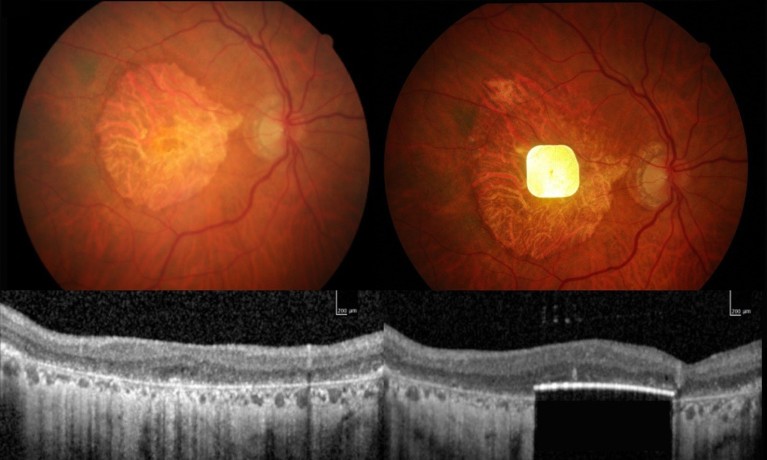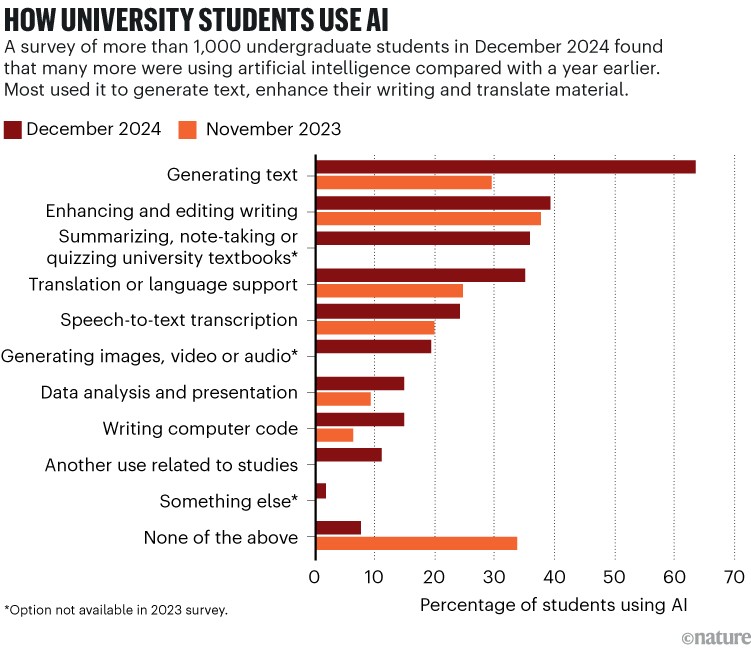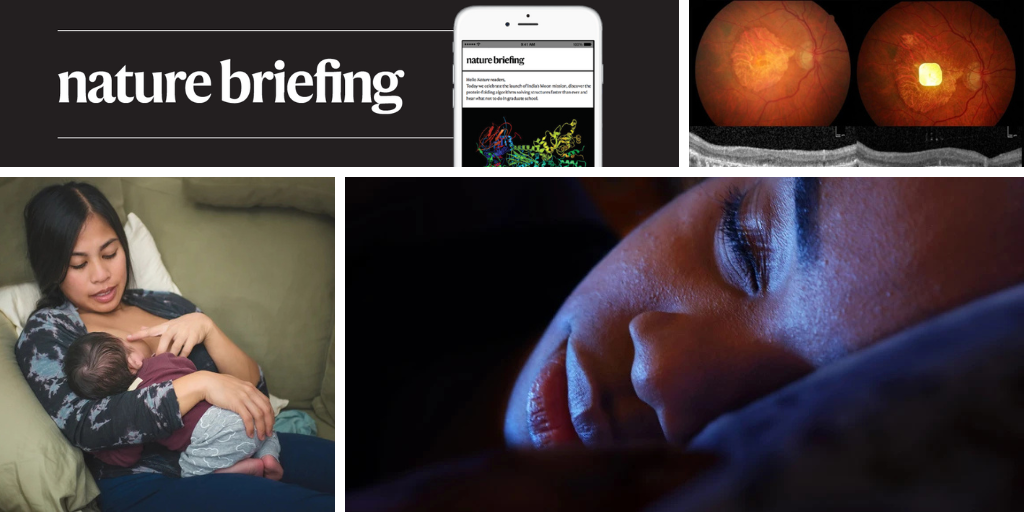You have full access to this article via your institution.
Hello Nature readers, would you like to get this Briefing in your inbox free every day? Sign up here.

An electrical device implanted under the retina helps to restore some visual acuity to people with age-related macular degeneration.Credit: Science Corporation
An implant has improved the vision of dozens of people with age-related macular degeneration (AMD), the commonest form of incurable blindness in older people. The device is inserted just under the retina to replace the light-sensitive cells that have been lost to the disease. Camera-glasses capture images and transmit them to the implant, which then electrically stimulates the surviving retinal neurons. “Patients could read letters, they could read words,” says ophthalmologist and trial leader Frank Holz. But the device takes months of intensive training to use.
Reference: The New England Journal of Medicine paper
When a part of the brain has been surgically disconnected, slow, sleep-like waves persist in that area despite the person being awake — contributing to our understanding of what conscious and unconscious brain states look like. Researchers studied children with severe epilepsy who had undergone a hemispherotomy, in which the part of the brain in which seizures originate is severed from the rest of the organ. The team found that electrical activity in the isolated area slowed to rhythms called delta waves. This activity was similar to that observed in the brains of deeply sleeping children who hadn’t had the surgery.
Reference: PLOS Biology paper
Pregnancy and breastfeeding induce the accumulation of specialized immune cells that protect against breast cancer. As breast tissue remodels to create a supply of milk, and reverses the process after weaning, new cells are created and older, damaged ones are cleared out. This biological redesign is “a main trigger” for the recruitment of specialized immune cells called CD8+ T cells, says oncologist and study co-author Sherene Loi. Researchers found that women with breast cancer who had breastfed after giving birth had more T cells in the breast tumours and better survival rates than did those who hadn’t.
Researchers gave 14 volunteer runners, cyclists and triathletes an energy-tracking cocktail of water labelled with deuterium and oxygen-18 to confirm the maximum amount of energy a person can expend for a sustained period of time. It was around 2.4 times the basal metabolic rate (BMR) — the amount of energy the body uses while just chilling out. At their peak — during competitions, for example — some athletes burnt around 9,000 calories a day. But they unconsciously cut back on using energy elsewhere, such as walking or fidgeting, ultimately keeping their output under the 2.4 BMR ‘metabolic ceiling’ over the long term. The limit seems to come down to how much food you can absorb.
Reference: Current Biology paper
Features & opinion
The arrival of artificial intelligence (AI) tools onto campuses is sending shockwaves through universities worldwide. Some institutions, such as Ohio State University in Columbus, are weaving AI into their entire curriculum and encouraging students to experiment with AI-powered tools. But concerns that AI will impede learning also loom large. The University of Sydney is mandating in-person tests to ensure that students have learned skills and not outsourced them to AI. Academics are split: some are experimenting with AI in their teaching, whereas critics argue that universities should be cautious about embracing tools dogged by ethical and environmental concerns and with unknown cognitive impacts.

Source: J. Freeman Student Generative AI Survey 2025 (HEPI, 2025)
President Donald Trump’s plan to reduce US drug prices with a direct-to-consumer website is unlikely to deliver on its goals, argues health economist Beth Woods. It won’t be any cheaper for people with health insurance, and for those without, medications sold through the site will still be prohibitively expensive, writes Woods. And Trump’s efforts to harmonize US drug prices with cheaper ones abroad would be more effective if they focused on regulation at home instead of applying diplomatic pressure and tariff threats to other countries. Ultimately, tying drug prices to their health benefits would mean fewer but more-effective new medicines, curbing excessive drug spending.
Brazil, Australia and Italy have the highest satisfaction scores in Nature’s global 2025 PhD survey. Meanwhile the Nordic countries — which routinely score near the top of global happiness surveys — collectively reported an impressive 85% satisfaction rate, higher even than Brazil’s. Worldwide, the survey identifies some measures that correlate with satisfaction: spending at at least one hour a week with a supervisor and not working excessively long hours, for example.
Today I’m impressed with the US$2.3 million raised for ocean conservation work by sales of a re-issued vintage 1993 Monterey Bay Aquarium T-shirt that had been spotted on sea-otter fan Taylor Swift. The California aquarium has apparently invited Swift and her fellow otter-lover, Travis Kelce, for a private tour — which almost makes me regret abandoning my career as a generation-defining popstar/football player. But only almost.
Support my decision to stick to newsletters by letting me know what you think about this one. Your feedback is always welcome at [email protected],
Thanks for reading,
Flora Graham, senior editor, Nature Briefing
With contributions by Jacob Smith
• Nature Briefing: Careers — insights, advice and award-winning journalism to help you optimize your working life
• Nature Briefing: Microbiology — the most abundant living entities on our planet — microorganisms — and the role they play in health, the environment and food systems
• Nature Briefing: Anthropocene — climate change, biodiversity, sustainability and geoengineering
• Nature Briefing: AI & Robotics — 100% written by humans, of course
• Nature Briefing: Cancer — a weekly newsletter written with cancer researchers in mind
• Nature Briefing: Translational Research — covers biotechnology, drug discovery and pharma


